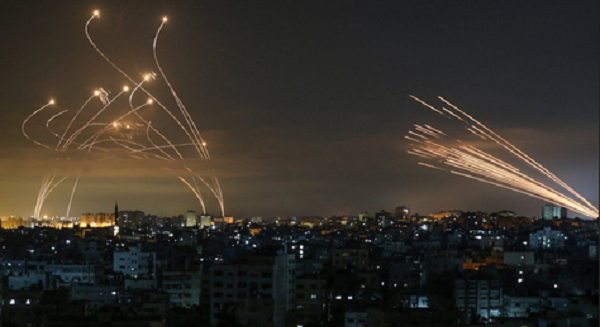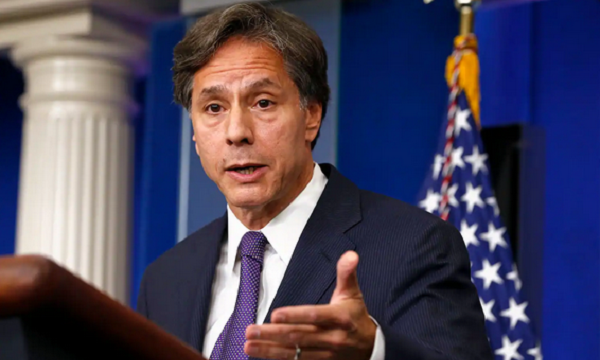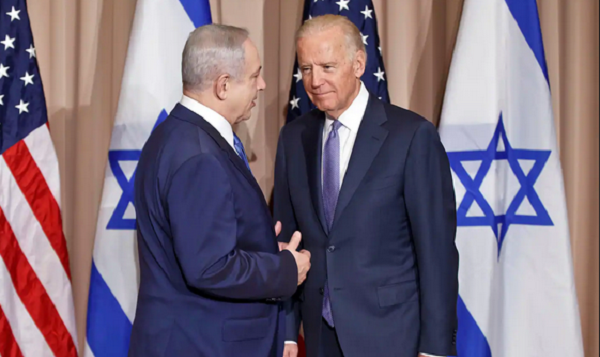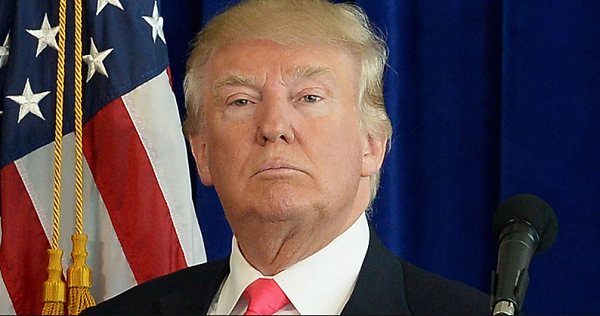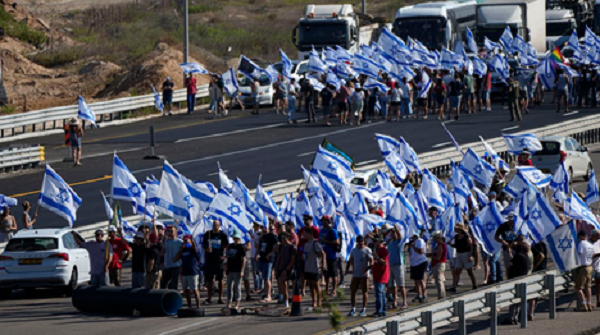Israel knocked down virtually over 300 drones and missile fires by Iran
Iran fired more than 300 drones and missiles in an overnight reprisal against Israel that caused remarkably little damage after air defence systems knocked down virtually all of the incoming projectiles.
The unprecedented direct attack has raised fears that Israel will once again respond, with the country’s defence minister Yoav Gallant warning that the conflict with Iran “is not over yet.” Iran said it acted in response to an April 1 Israeli strike on an Iranian diplomatic building in Syria that killed seven members of the Islamic Revolutionary Guard Corps, two of them generals.
As the UN Security Council prepared for an urgent meeting Sunday to discuss the attack, Tehran warned that any Israeli counterattack will be met with a response that is “stronger, and more resolute.” The risk of conflagration devolving into a regional war has sparked widespread fear – and the incoming missiles, preceded by news that a slow-moving flotilla of drones had been launched – brought a sleepless night for many Israelis.
But Iran immediately signalled that it had little appetite for further exchange of hostilities – and its attack, which filled skies over Jerusalem and Tel Aviv with the fiery tails of downed missiles, rained little destruction on Israel, which said that only a military base had seen minor damage.
Leaders of the G7 nations condemned Iran’s attack on Israel and said on Sunday that they would work to try to stabilize the situation in the Middle East.
“With its actions, Iran has further stepped toward the destabilization of the region and risks provoking an uncontrollable regional escalation. This must be avoided,” a statement issued by G7 president Italy said after a video conference involving the group’s leaders.
Iran fired at least 185 drones, 110 ballistic missiles and 30 cruise missiles. Still, Israeli emergency services reported only one serious injury to a Bedouin girl, who was struck not by a missile but by falling debris from an interception. Israel’s prime minister Benjamin Netanyahu said credit belongs to the country’s sophisticated air defence forces, who joined with U.S. forces, British jets and the Jordanian military in knocking down much of the incoming barrage.
“We intercepted. We blocked,” Mr. Netanyahu wrote on X, formerly Twitter. “Together we will win.”
But the thoroughness of the defence was so complete, and the scale of damage so limited, that observers suggested the attack seemed designed as a show of force rather than a provocation.
The attack left “not even the tail of a dog hurt,” said Yigal Carmon, a retired colonel who served in the Israel Defense Force intelligence corps and acted as a counterterrorism adviser to two Israeli prime ministers.
Iranian leaders, he said, “deserve the Nobel Prize for Peace for such an achievement.”
The Iranian government, in a statement made by its Permanent Mission to the United Nations during the attack, said it had acted in “legitimate defence,” but suggested it had no intention of further action. In avenging the death of its Islamic Revolutionary Guard Corps members, Iran said: “The matter can be deemed concluded.”
U.S. President Joe Biden, in a statement promised a “united diplomatic response” condemning the attack “in the strongest possible terms.” Canadian Foreign Minister Mélanie Joly expressed solidarity with Israel, warning that “these unprecedented attacks from Iran will only serve to further destabilize the region. It must stop.”
The key question now is how Israel will respond.
Hours before Iran launched its drones and missiles, Mr. Netanyahu warned that “we have determined a clear principle: Whoever harms us, we will harm them. We will defend ourselves against any threat and will do so level-headedly and with determination.”
But Israel has no need to attack in kind, said Matan Vilnai, a former Israeli major general who served as deputy chief of staff for the armed forces and as deputy minister of defence. He cited an adage from Chinese philosopher Sun Tzu: “The greatest victory is that which requires no battle.”
“It’s better not to respond,” he said. “We achieved a failure of the enemy so loud and clear that we do not have to do anything.” He credited the years and money Israel has invested in multiple layers of air defence, an effort that began in earnest after a series of Iraqi rocket attacks in 1991.
Defending against Iran has always been a central objective, and that project demonstrated its value Sunday night.
“But they will try to do something else. We must be ready,” Mr. Vilnai said.
Israelis on Sunday emerged from their safe rooms to marvel at what they had just witnessed, an attack that kept many awake nearly until dawn. “We were quite stressing for a few hours,” said Illy Hagege, who recounted racing to buy water, bread and dry food.
She faulted Iran for an overreaction to the killing of its generals. “It would be fair to respond – but we don’t want to start a war,” she said in Tel Aviv Sunday.
“We just want to live, you know,” added her friend, Ben Baruch. “Whatever makes us live and get back to normal life.”
Others said the scale of Iran’s assault on Israeli territory demands a response. “Some of their religious and political leaders need to be punished for this,” said Max Rahmilov, who was celebrating his birthday as Iran was preparing to launch its attack. He saw black humour in a situation that left Israel largely unscathed.
“We got some fireworks for my birthday,” he said. “I can thank Iran for that.”
Indeed, creating a public spectacle may have been a deliberate objective, said Mr. Carmon, the retired colonel. He is now president and founder of the Middle East Media Research Institute, which has studied Iran’s 2020 strike on U.S. forces at the Ain Al-Assad Air Base in Iraq, which caused no injuries.
The institute has found evidence that Iran gave prior notice of a reprisal for the killing of Gen. Qasem Soleimani, leader of the Revolutionary Guard’s elite Quds Force and personal confidant of Supreme Leader Ayatollah Ali Khamenei.
He believes Iran’s attack on Israel was carried out in a similar fashion, a show of force designed to avoid casualties.
“There will be no retaliation,” he predicted. “Why should there be? What do we want, war with them?”
– with a report from Reuters
This article was first reported by Reuters







